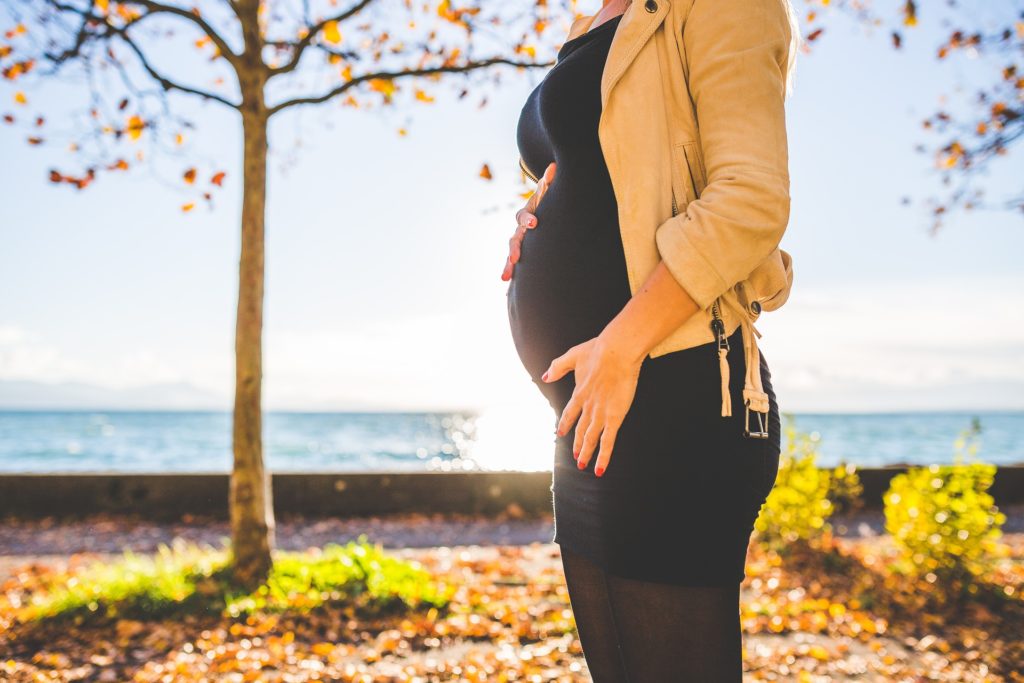- Calls to this hotline are currently being directed to Within Health, Fay or Eating Disorder Solutions
- Representatives are standing by 24/7 to help answer your questions
- All calls are confidential and HIPAA compliant
- There is no obligation or cost to call
- Eating Disorder Hope does not receive any commissions or fees dependent upon which provider you select
- Additional treatment providers are located on our directory or samhsa.gov
Having an Eating Disorder During Pregnancy

Pregnancy is a delicate time with many changes and transitions, and for a woman who may also be struggling with an eating disorder, such as anorexia, bulimia, or binge eating disorder, this time can feel especially vulnerable.
A woman who with other risk factors for an eating disorder may be triggered by the changes experienced throughout the course of pregnancy, including weight fluctuations, body changes, possible challenges with body image and more.
Similarly, a woman who might be in recovery from an eating disorder might find herself relapsing during pregnancy, depending on the triggers that are affecting her.
Yet some women who have previously struggled with an eating disorder find pregnancy a motivating time to stay on track with recovery efforts and are able to refrain from engaging in eating disorder behaviors.
Keeping Focused on Recovery
With all the different things that pregnancy brings and the transition into motherhood, engaging in eating disorder behaviors can feel like a means of establishing a sense of control, especially when everything else seems out of your control.
For example, weight gain during pregnancy is something that is not only part of the natural process of growing a baby, but a needed aspect of the healthy development of a child. Inadequate weight gain during pregnancy can lead to potential consequences, including a low birth weight for baby and premature delivery [1].
For a woman who may be in recovery from an eating disorder, there may be a disconnect from the pregnancy and growing baby as a result of the eating disorder and a preoccupation with other things, like controlling weight, diet, excessive exercise and more.
Getting professional help is essential for being able to stay focused on recovery efforts that can help ensure both a safe/healthy pregnancy and outcome for mother and baby.
Staying Connected to Support
Pregnancy will be experienced differently from one woman to another, and this is also true for women with eating disorders. While some women may be motivated to stay in recovery during pregnancy, other women may resort back to eating disorder behaviors as a result of the overwhelm they may be experiencing.
Whatever your experience may be, it is important to stay connected to professional help and resources during this time, including your OBGYN or midwife and eating disorder treatment team. The life of your developing baby and future of your recovery and health depend on it.
 About the Author:
About the Author:
Crystal is a Masters-level Registered Dietitian Nutritionist (RDN) with a specialty focus in eating disorders, maternal/child health and wellness, and intuitive eating. Combining clinical experience with a love of social media and writing where her passion to help others find recovery and healing is integrated into each part of her work.
As a Certified Intuitive Eating Counselor, Crystal has dedicated her career to helping others establish a healthy relationship with food and body through her work with EDH/AH and nutrition private practice.
References:
[1]: American Pregnancy Association, http://americanpregnancy.org/ Accessed 17 January 2017The opinions and views of our guest contributors are shared to provide a broad perspective of eating disorders. These are not necessarily the views of Eating Disorder Hope, but an effort to offer discussion of various issues by different concerned individuals.
We at Eating Disorder Hope understand that eating disorders result from a combination of environmental and genetic factors. If you or a loved one are suffering from an eating disorder, please know that there is hope for you, and seek immediate professional help.
Last Updated & Reviewed By: Jacquelyn Ekern, MS, LPC on January 18, 2017
Published on EatingDisorderHope.com

The EatingDisorderHope.com editorial team comprises experienced writers, editors, and medical reviewers specializing in eating disorders, treatment, and mental and behavioral health.

